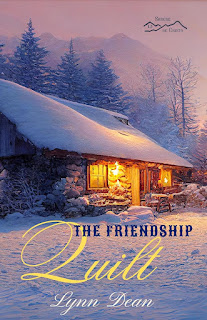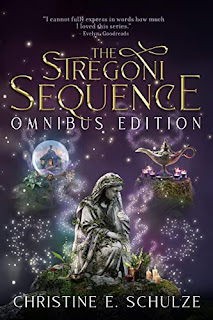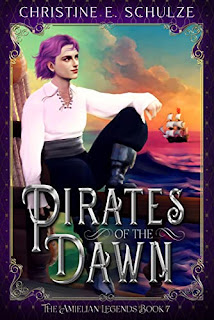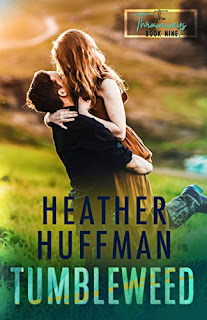My very first professional writing project was Discover Texas, a history curriculum for parochial and homeschool students, now celebrating its 25th year. I wrote it because I couldn't find a history program for my own children that would help them experience history vicariously so they could better understand it. Of course it has an extensive book list including historical fiction selections. I've always loved that genre because it helps any reader see history through the characters' eyes.
While researching Discover Texas, I discovered a travesty of justice that took place in my own town during the Reconstruction Era. The victim was mentioned only in passing, a nameless footnote, which made me determined to learn his name and try to tell his and other stories of that period through the eyes of a fictional observer. More Precious Than Gold tells the story of Eliza Gentry, a spinster who's suffered injustice and losses of her own. When Eliza's father takes a stand for the real-life victim, things turn dangerous, forcing her to head west to the gold rush in New Mexico Territory. Attempting to outrun her grief, she runs headlong into the man who caused it.
The book has strong romantic elements, but I consider it historical women's fiction because the focus is on the things all women want and the challenges we face when God takes our life in a direction we would never have chosen.
How do you go about doing research for your books? How do you choose a time period? What’s one of the most unique facts you’ve discovered in doing your research?Oh, my goodness, I could write a book just on these questions! I'm a research junkie. I was that weird student who loved research papers and asked if I could write more than the required number of pages. ;)
I started with the Texas History curriculum because I had a practical need. When I decided to write a historical novel, I chose the Reconstruction Era because it was rife with conflict, and I dropped my fictional characters right in the middle of a real-life riot to see what might happen.
Several unique and meaningful things happened while I was researching More Precious Than Gold. My first stop was the Baylor University Library which has a fabulous Texas Collection of original source documents. The librarian who offered to assist me was African-American, and I felt ashamed to tell her what I was searching for because it involved an atrocity against a young man, formerly enslaved, who was unjustly accused of a crime. I explained as delicately as I could, but I saw her recoil. She asked me why I wanted the information, and I explained that the article I read focused only on the legal aspects without ever mentioning the boy's name. I said, "I want to find out who hurt him, tell his story, and try to give him his name back."
Her eyes filled with tears, and she wrote down information about four data centers in our state where a copy of every written court record is kept on microfilm. With the name of the Freedman's Bureau official and a range of dates narrowed down to about a 20-month period, I set out to the nearest data center about 90 miles away, signed out a box of film rolls, and started scrolling. Three hours later I found the court case I was looking for. I was so excited! It's hard to explain, but focusing so intently on that slice of history I felt almost as if I'd travelled back in time. I became completely unaware of the rather vintage viewing room. The courtroom scenes I was reading were so much more real to me. I wrote copious notes, paid for a few copies, and headed home.
On the way, I called my mother. She was the first to encourage my love of stories, and since she'd been reading my early chapters, I knew she'd understand my excitement.
"Mom! I found him! His name was Tony McCrary. I found his mother's name and the name of the man who owned them. I even found the names of the accomplices and the no-good judge who refused to call a grand jury."
My sweet mama said, "That's wonderful! And were you able to find Eliza and her father?" When I reminded her that Eliza and Rev. Gentry were fictional characters, she said, "Oh, dear. I forgot. They feel very real to me."
That's when I knew I'd written a good story. ;) And that's why I love quality historical fiction. Writers have the power to help us see the world and its issues from many perspectives and to actually feel the hearts of others.
The second novel in the Sangre de Cristo series, Stronger Than Mountains, returns us to New Mexico Territory during the Land Wars, and this year I added a holiday novella, The Friendship Quilt, to further expand the community around Elizabethtown. A second generation of characters has begun to whisper parts of their stories to me, so who knows? The Sangre de Cristo series may become a family saga.
You’re part of a multi-book set with other authors called Our House on Sycamore Street. How did that come about? All the books tell a unique story, but they're all set on the same street. How do you make that concept work for all the books?
To tell the truth I'm not really sure who suggested my name to the series creator, Anna Jensen, but I'm SO glad she did! Anna is a British ex-pat living in South Africa. She put together a group of 14 Christian authors from South Africa, Australia, England, Ireland, and the United States who write in several different genres. The concept works, though, because each story takes place in one of the twelve houses on Sycamore Street in the fictional village of Eden Cove where the River Deben flows into the North Sea.
Of course, it's the sycamore tree for which the street is named that ultimately ties the series together.
Some say that the Tree of Life in the Garden of Eden was a sycamore tree, just like the one that grows in the park on Sycamore Street in Eden Cove. And, of course, we know it was a sycamore tree that Zaccheus climbed to catch a glimpse of Jesus that changed his life forever.
Each book in the series tells the story of one such life-changing glimpse of the Lord that becomes a turning point.
What’s the best encouragement you’ve had in your writing?
I mentioned that my mother was my first encourager. She wrote down my first stories and encouraged me to write more.
My third grade teacher, Mrs. Cathey, also went out of her way to encourage me. I was new to the town and to the school and feeling shy about making friends. I often finished my seat work early, and I guess she knew I needed a challenge, so she presented me with a workbook filled with story prompts and gave me her blessing to start anywhere I liked and just write. What a gift that was! She opened the door and gave my imagination permission to run and play.
I realized later that she had probably purchased the workbook with her own money, so when my first novel was published I tried to contact her. Her son answered the phone and let me know she had moved to a memory care center the week before. I told him what a wonderful thing she'd done...that I'd never forget her, and he said it was a comfort to know that as a teacher she'd touched and changed children's lives.
Marketing is the biggest key to making sales. What is the best marketing source you've used that has produced more sales rather than just clicks?
Before I answer, let me say that my best-selling publications have been written for very small niche markets. VERY small...but that can actually be an advantage. People who like Hobbit architecture or deeply researched historical novels don't always find a plethora of possibilities, so when they DO find an author they enjoy, there's a good chance they'll check out other things by the same author.
My favorite marketing source is Book Funnel. I'm slowly re-releasing my earlier works, and at the end of each I include the first chapter of the NEXT book in the series AND a link where they can download a bonus chapter, an epilogue, a quilt pattern, or a list of questions to use in hosting a book club. Of course, you ask nicely for their email address so you can send their free gift, promising never to spam them and expressing your sincere hope that you'll remain friends "happily ever after."
I don't know why it took me so long to realize this, but it works marvelously! My email list grows on its own as I bless people with gifts that cost me very little besides a little time and thought. Based on my early results, I'm very eager to add value to each of my publications. Of course, once you have a nice community of readers who enjoy what you write, writing a series or anthology with similar authors helps readers meet others who write about similar things. The more you share, the more everyone benefits!
You will get a few people who "grab the goodies and go," but I don't let that bother me. I'm looking for the folks who love what I'm offering and decide to stay. Marketing is mostly a matter of helping people find what they've been looking for.
What do you know now about writing you wished you had known sooner?
Aside from organic marketing, the main thing I wish I'd known sooner is that EVERYONE struggles with Imposter Syndrome--the fear that maybe we're really not that good.
You know what? I've read a lot of books that weren't as good as some others I've read, but I enjoyed them nonetheless. I'll often buy another book by a new author and enjoy watching their skills and voice blossom in later novels. It makes me feel like I know them.
My first book placed 3rd in a writer's contest...and I didn't tell anyone. I kinda thought, "If 2nd Place is first loser, what does 3rd Place say about me?" You know what? It says I'm a perfectionist with unrealistic expectations who needs to work on her confidence as much as on her skills!
If you're one of the many, MANY people who's "always wanted to write," please don't convince yourself that you have to be excellent on the first attempt. That's what editing is for! ;)
What is the best writing advice you’ve received or could give?
You are the only person who sees the world through your eyes. That means the stories you tell will be unique, just because they're yours. Don't try to write like anyone else. Write what you know, what you've lived through, and what you've learned from it. That will be a story others will want to hear and, maybe, see something of themselves in.
Are there any other points about writing you would like to add?
So much...but let's save it for another time. ;) The main thing is to start. Whatever's on your heart, just start!
I had the pleasure of meeting Craig Johnson when he was the keynote speaker at last year's Will Rogers Medallion Award presentation. He told about writing the first three chapters of a story and feeling so discouraged by an early bit of feedback that he buried it in a drawer. It stayed in that drawer for ten years before he pulled it out and finished it. That manuscript became the first book in his Walt Longmire Mystery series, which was eventually made into a popular television series. Don't bury your potential in a drawer.
What is the next book coming out? Can you give me a short synopsis?
The next book I have coming out is The Bookbinder's Daughter, available for preorder now and launching October 4, 2024 in paperback and ebook formats as book #10 in the Our House on Sycamore Street series.
The story is set in 1915 at the beginning of World War I. Molly Hopewell's husband has just left for duty in France when their Suffolk farmhouse is destroyed during a Zeppelin bombing raid. The aging recluse who lives at No. 9 Sycamore Street surprises everyone in Eden Cove by inviting the refugee family to move in with her, but Molly learns too late she's being used...and that her hostess isn't entirely sane.
As the community rallies to help each other through uncertain times, Molly isn't sure who she can trust with the truth about her dangerous situation. With few alternatives available, can she find ways to shield her children and learn to "love from a safe distance"?
This story takes a somewhat humorous look at what it's like to live with a narcissist who refuses to allow their delusions to be influenced by facts. ;)
I am impressed by the detailed research Lynn does for her books and her love of writing. I hope you'll start reading them if you aren't already. Here are a couple of links to learn more about her writing.
And here's a special bonus for my readers... Lynn will send a copy of The Bookbinder's Daughter as soon as it releases. Just leave a comment on this post telling her if you linked to her website or Facebook page or both. If you can show that in your post so she can see it, that would be wonderful! One winner will be chosen by random from those who comment. Drawing will be next Friday!




































